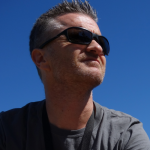Research has shown a link between the development of MS and infection with Epstein–Barr virus (EBV). The majority of healthy adults are infected with EBV, which infects a subset of white blood cells called B cells. Once a person becomes infected with EBV, they carry the virus in their B cells for the rest of their life. In most cases, the virus is kept in check by another type of white blood cell, called T cells. T cells can recognise and kill virus-infected cells. Previous studies by Professor Pender’s research group have shown that people with MS have a reduced number of T cells capable of killing EBV-infected B cells, compared with healthy people. We have proposed that this allows EBV-infected B cells to accumulate in the central nervous system, where they promote an immune attack on the nervous system, leading to the development of MS. This clinical trial is evaluating the safety and feasibility of using a patient’s own EBV-specific T cells to treat progressive MS.
In total, ten patients (five with primary progressive MS and five with secondary progressive MS) will be recruited from Professor Pender’s MS clinic at the Royal Brisbane and Women’s Hospital. Once a patient provides their consent to participate in the project, a range of assessments are done to determine if they meet the eligibility criteria of the trial. After eligibility is confirmed, a blood sample is collected from the participant and the white blood cells are isolated so that the EBV-specific T cells can be grown in the laboratory. Once these cells have multiplied, they are frozen at four different doses, ready for intravenous infusion back into the patient. We are administering four increasing doses to reduce the risk of aggravating central nervous system inflammation.
Safety and tolerability of this immunotherapy will be measured using clinical examination, a battery of neurological assessments, blood testing, monitoring of vital signs, magnetic resonance imaging of the brain and spinal cord, cerebrospinal fluid analysis, and assessing changes in neurological symptoms.
To date, nine patients have consented to participate in the trial. Six of these participants have received all four infusions of their own T cells and one patient withdrew prior to treatment, due to an unrelated health complication. A further three participants are either about to go through the procedure, or are currently undergoing the procedure. To date, no serious side-effects related to the therapy have been observed in trial participants, which is encouraging, and we look forward to the results from this study.
Professor Rajiv Khanna
$682,785
2015
3 years
Past project

